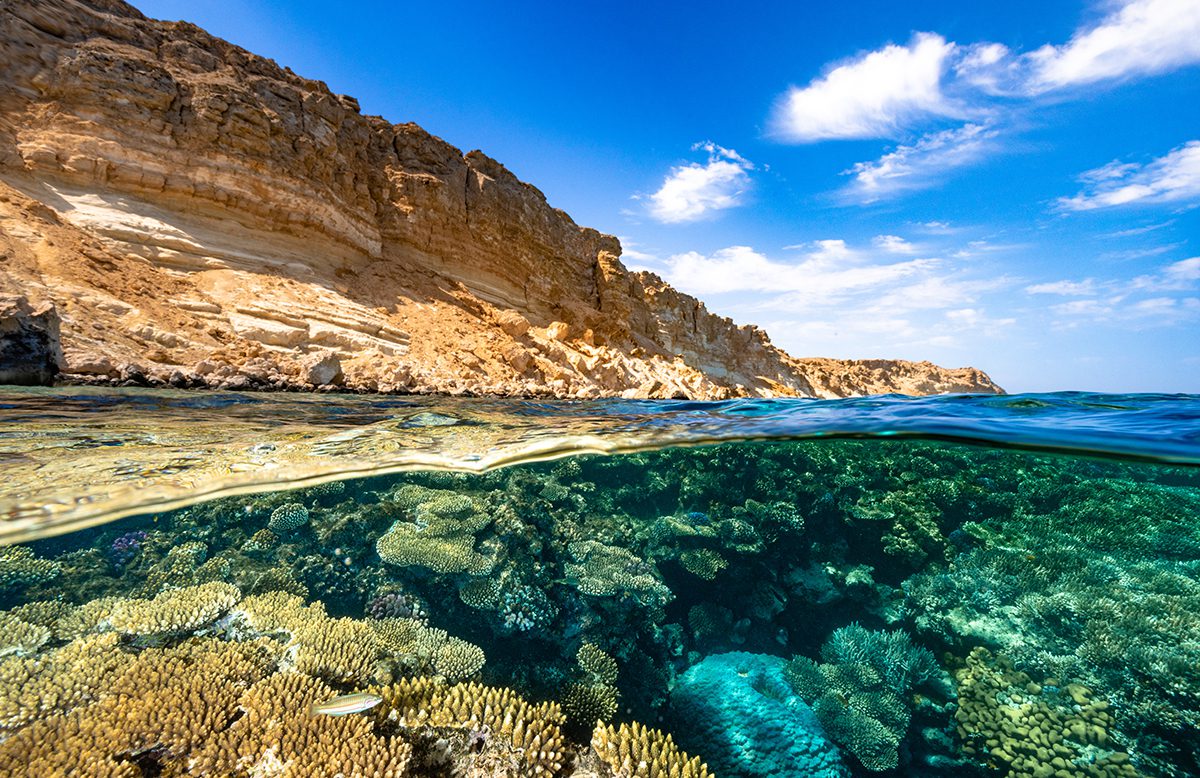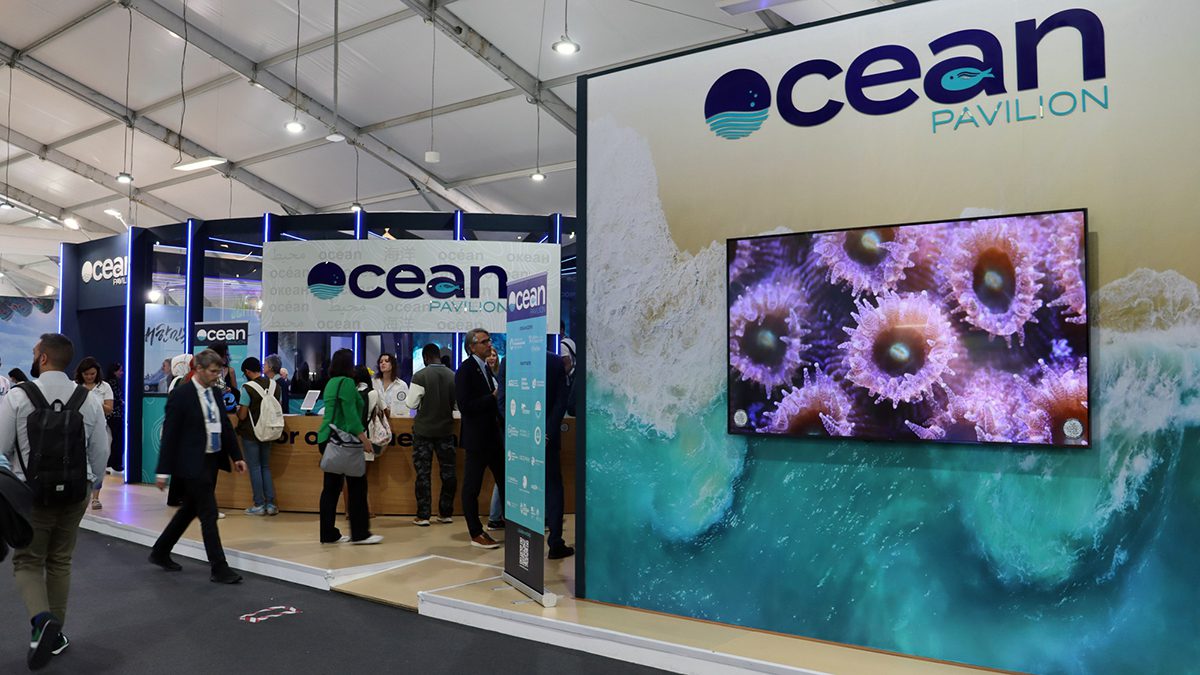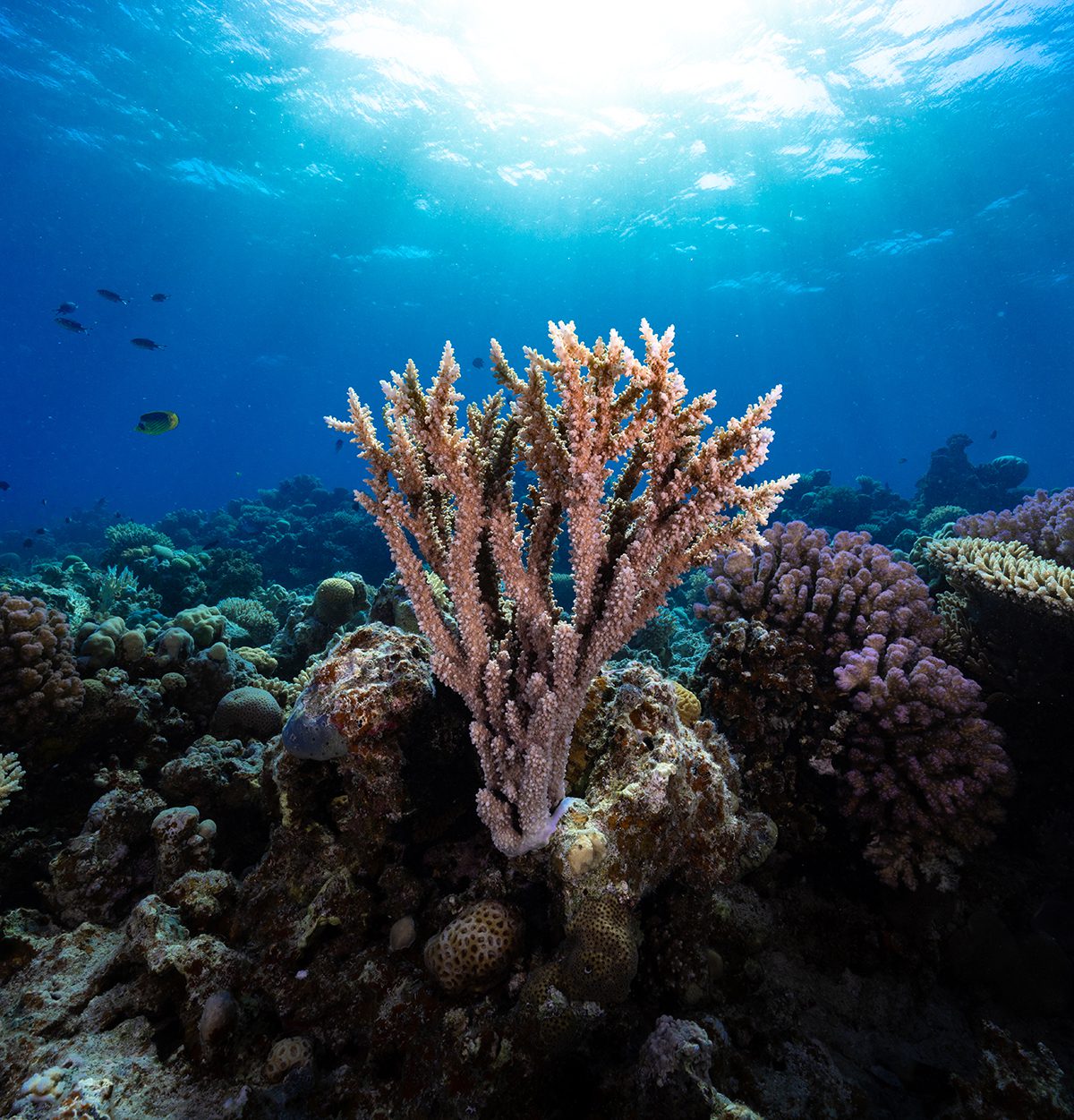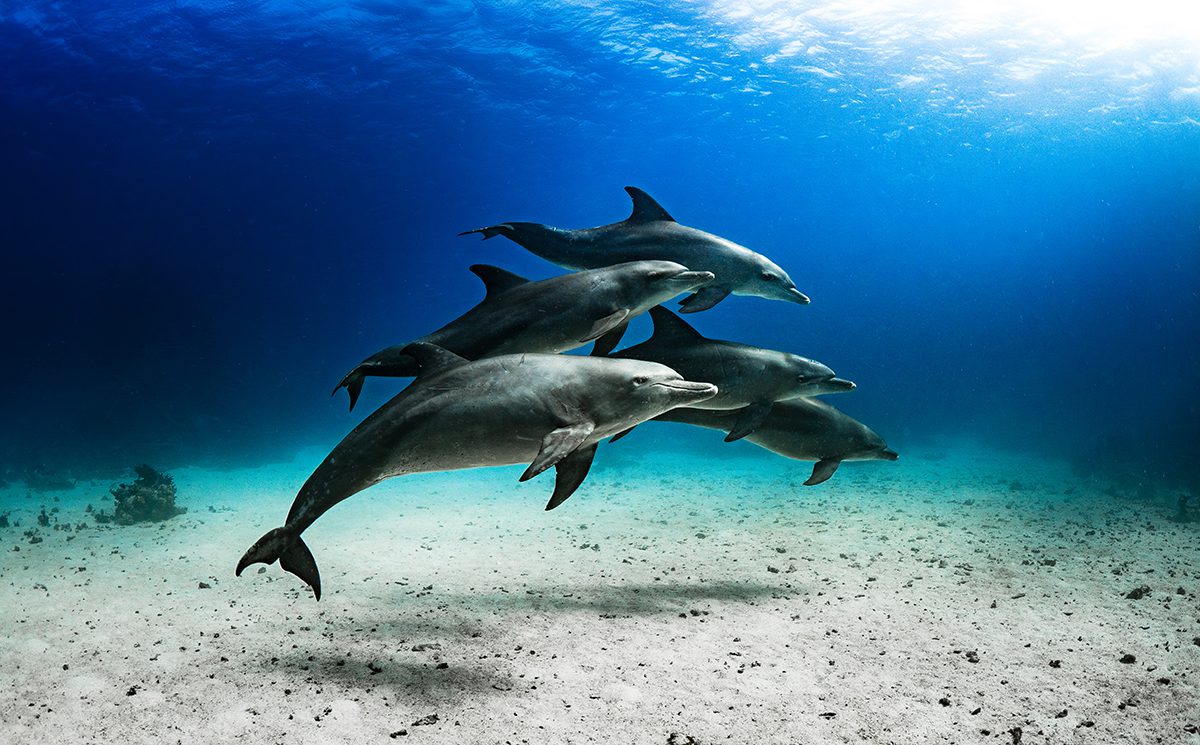
The rocky desert coastline of the northern Red Sea. Sea levels around the world are rising and coral is being bleached by acidification due to increasing CO2 levels
Amid much scepticism about whether the global climate summit COP28, taking place in Dubai over the next few weeks, will actually bear any positive results, there are rays of hope. Ted Janulis, investor, entrepreneur and founder of Investable Oceans, outlines the reasons he is feeling cheerful in the run-up to an event that needs to change the way we think about and deal with climate change
In just a few days, 70,000 people will convene in Dubai to attend COP28 (the 28th annual “Conference of the Parties”), where delegates from countries all around the world will discuss how to address the climate crisis. The UN Framework Convention on Climate Change (UNFCCC) – tasked with finding ways to reduce emissions – will track member states’ progress on emission reductions and negotiate further collective action, alongside business leaders, climate scientists, journalists, and others in attendance. Major topics will include how vulnerable communities can adapt to climate change and how to achieve net-zero emissions by 2050.
We’re at a critical juncture for our climate and oceans, so this COP is particularly important. While increased commitments provide grounds for some optimism, our oceans and climate face continuing serious challenges. We’re not on course to stay within the 1.5C increase above pre-industrial levels scientists warn is required to avoid serious environmental and human consequences, and in addition we’re falling far short of the $150 billion per year cited by recent research needed to achieve the goals of Sustainable Development Goal 14, Life Below Water by 2030. The bottom line, as former president of Ireland Mary Robinson eloquently put it: “We cannot afford to have a bad COP”.

Desertification and coastal erosion are major issues facing the world
Despite these daunting circumstances, we’re looking forward to seeing oceans having a substantial presence at COP28. This is a continuation of a theme that has gained momentum throughout 2023: there is growing recognition that the oceans, the world’s largest carbon sink, will play a pivotal role in providing solutions for climate change.
Follow LUX on Instagram: luxthemagazine
This year’s Climate Week NYC in September was a clear demonstration of this progression, as the number of events, announcements and real outcomes increased substantially from previous years. Amy Novogratz, Co-Founder and Managing Partner of Aqua-Spark, asserted that: “Climate Week is feeling very Blue this year, finally!”

The Ocean Pavilion at the 2022 COP in Sharm el-Sheikh. The 2023 Pavilion features ten ocean themes
A substantial increase in investable opportunities has added to this marine momentum. At least 10 new blue economy dedicated funds have launched over the past year, bringing the total count to over 30. A major focus of these funds is how to measure the environmental impact of sustainable ocean investing. In other recent news, a variety of blue bonds have come to market that involve debt-for-nature swaps, sovereigns and corporations, and Rockefeller Capital Management and KraneShares now offer an ocean engagement themed Exchange-Traded Fund (KSEA).
On the investor side, oceans made their debut on the plenary stage at the GIIN’s annual conference in Copenhagen, where discussions covered the proverbial waterfront, from ecosystem conservation to coastal resilience to blended finance to nuclear sharks. We also saw increased interest in the ocean sector from “terrestrial” investors. For example, sustainable agriculture funds are beginning to look at aquaculture as an attractive adjacent opportunity to their core focus.

A towering Acropora coral, one of the hundreds of coral reef species that help support up to 25% of all marine life
The upcoming COP28 will seek to capitalise on this surge of ocean interest and activity. Notably, oceans will be included in the COP28 thematic programme for the first time, with a special focus on 9th December. Together with an array of ocean events, gatherings and presentations at different pavilions, this represents a substantial increase in the ocean’s presence in global climate conversations and solutions.
Read more: Baroness Scotland and Markus Müller: a call for action at COP28
One of the highlights of COP28 will be the return of the Ocean Pavilion, which will bring diverse stakeholders together in a dedicated space within COP’s “Blue Zone” for its second year. The organizing partners, Woods Hole Oceanographic Institution and Scripps Institution of Oceanography at UC San Diego, will lead 32 partners through two weeks of events. The Pavilion programming is structured by ten themes organised under three tracks: Changing Ocean, Climate Consequences, and Future Ocean.

A pod of charismatic dolphins swimming in the shallows. Overfishing and bycatch are major issues for our oceans
The Pavilion is meant to inspire ocean-focused solutions through 70+ panel sessions, meetings and in-depth discussions. We are particularly excited about the “Blue Economy and Finance” theme, which explores the role that finance can play in ensuring that the ocean can continue to protect and provide for human societies in the coming decades. For example, Margaret Leinen, Director of Scripps Institution of Oceanography, will moderate a panel, Frontloading Equity in Financing Coastal Climate Resilience, exploring questions such as: How can we scale climate finance to reduce climate risks, speed recoveries, and reap the benefits of resilience? And how can our quantification of the financial costs of climate change be redesigned to yield equitable outcomes?
Despite all the headwinds, we are hoping for positive progress over the next weeks in Dubai.
Ted Janulis is Founder & Principal, Investable Oceans
Co-written with Helena Janulis, Business Development and Special Projects, Investable Oceans
All photos by Morgan Bennett-Smith
Find out more: www.investableoceans.com








